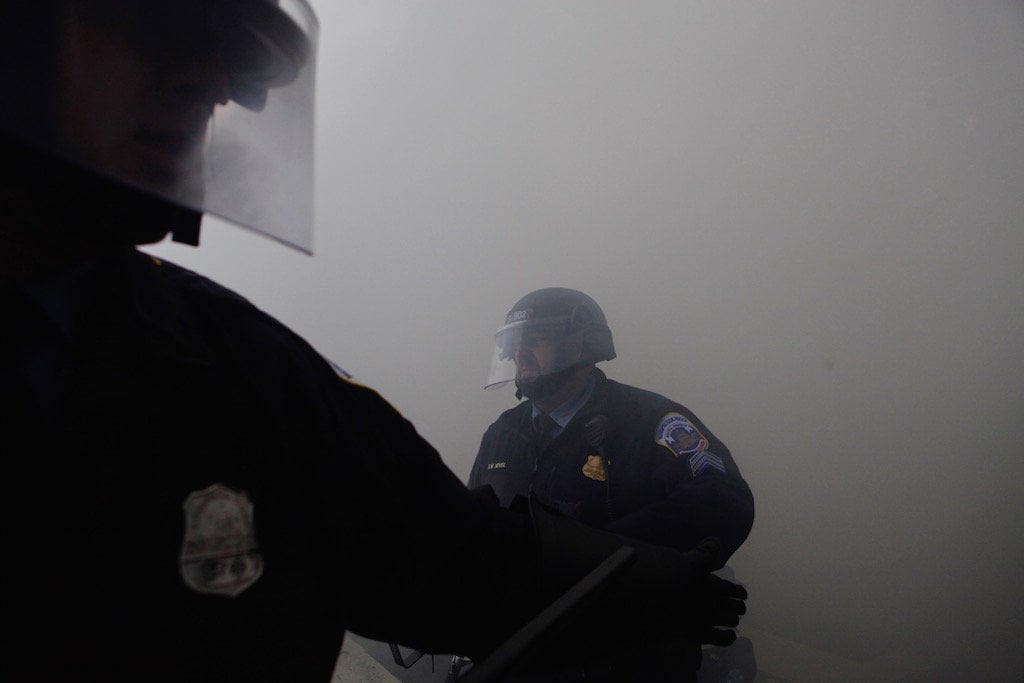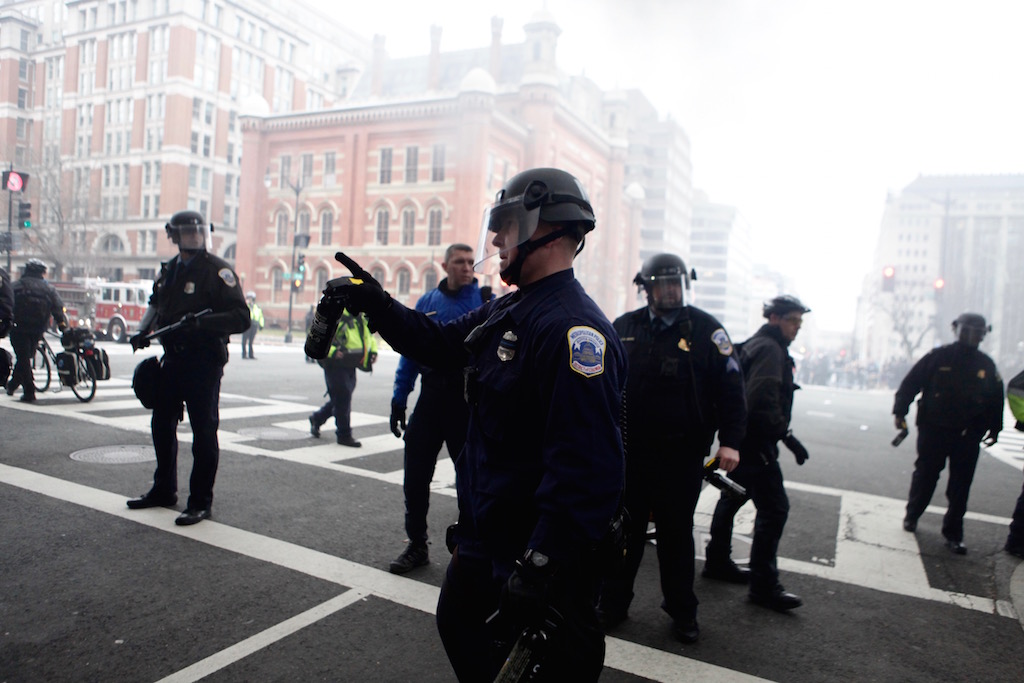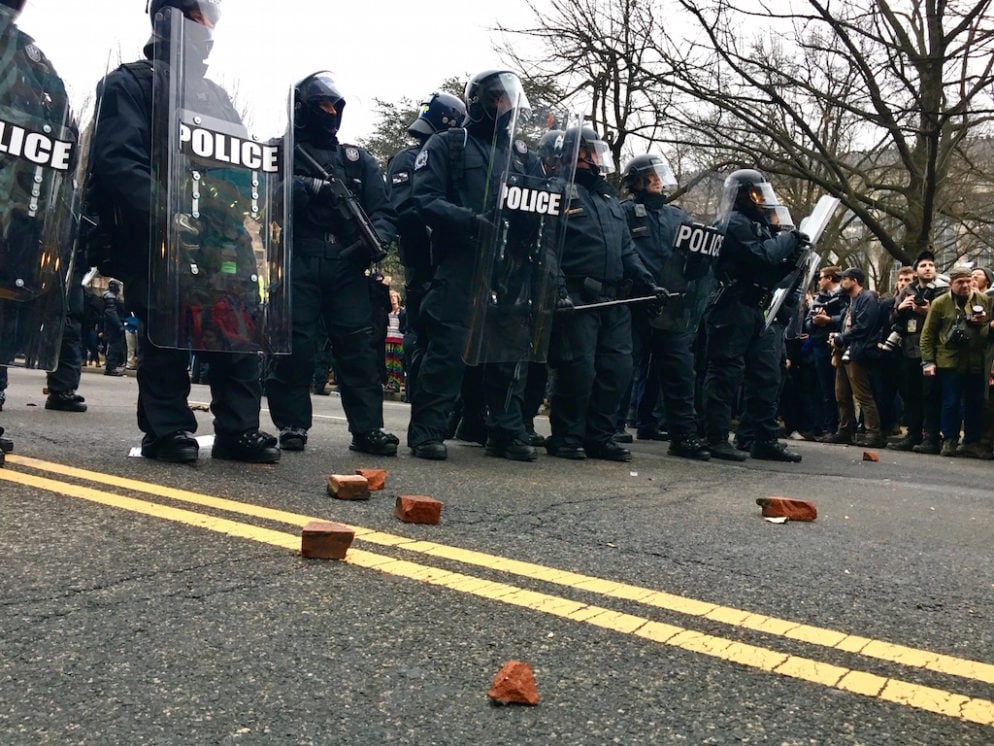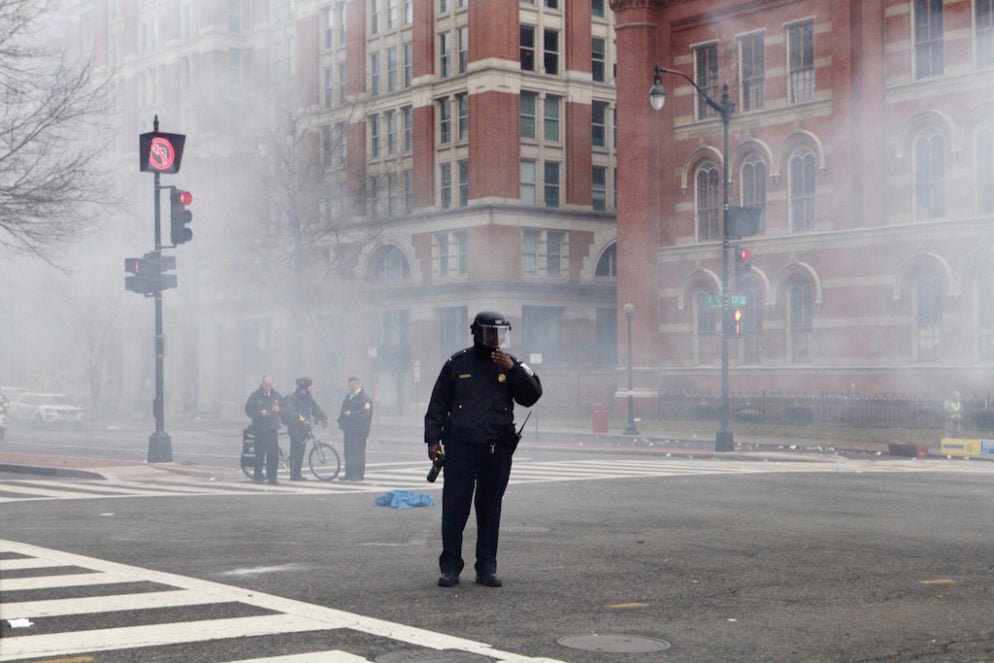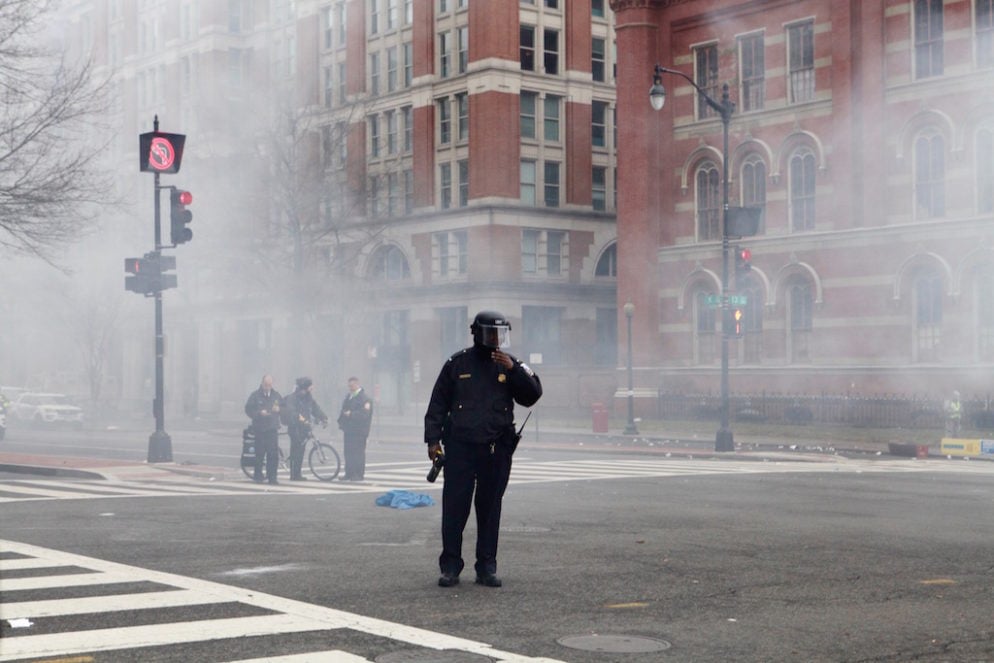Federal prosecutors announced this week that they were dropping charges against 129 of the people accused of rioting on Inauguration Day, though another 59 still face decades in prison.
The US Attorney’s Office for DC said dropped charges against about 69 percent of the 188 remaining defendants “so that it can focus its efforts on this smaller, core group that we believe is most responsible for the destruction and violence that took place on Inauguration Day.”
This comes after the government failed to secure any guilty verdicts during the first trial, which concluded shortly before Christmas. Assistant US Attorneys Jennifer Kerkhoff and Rizwan Qureshi had argued that the six defendants were guilty of property destruction, despite having no evidence of their destroying property during an anti-capitalist, anti-fascist march from Logan Circle to Franklin Square organized under the banner of “Disrupt J20.”
Instead, prosecutors contended that the defendants acted as a “getaway car” to help the people who did smash windows by wearing black and marching together.
The jury didn’t buy it. “The jury as a whole believes it is a legal act to attend a protest at which vandalism occurs,” said Juror 16 after the verdict was announced.
At the time, the government indicated it would press on with the 188 remaining cases, which would occur in group trials throughout 2018. Now, it’s changed its tune.
The new court filing, submitted Thursday evening, says that “in light of the legal rulings by the court and the jury’s verdicts in the first trial,” the government is focusing on defendants who they can prove participated in identifiable acts of destruction or violence, those who helped plan the violence, and those who knowingly helped others by engaging in a “black bloc” protest tactic.
But what does that say about the evidence against the 129 people who just had their charges dismissed?
“The US Attorney has essentially admitted it never had the evidence to charge these innocent people in the first place, and we’re gratified to see they’ve come to their senses,” Scott Michelman, a senior staff attorney for ACLU of the District of Columbia, said in a prepared statement. “We hope the government continues to carefully examine the evidence it has against the remaining 59 defendants, at least some of whom we continue to believe are innocent.”
The 59 people who still face charges include many who’ve been most outspoken about the ongoing prosecution: Elizabeth Lagesse, a constant presence at the first trial and an advocate since the indictment; journalist Aaron Cantú, and Dylan Petrohilos, who wasn’t arrested at the protest, but instead charged after police raided his home last April.
At the outset, 234 people were indicted with a slew of felonies in connection with the events of last January 20. Prosecutors dropped charges against 20 of them, and 20 more pleaded guilty—19 to misdemeanors and one to felony charges.
But the protesters aren’t alone in facing legal woes over their Inauguration Day actions. The ACLU of DC is suing the city and the DC police for what it describes as unconstitutional arrests and excessive force that day.
At the start of the 2018, a ten-year-old boy from North Carolina joined a photojournalist, two defendants, and a legal observer as a plaintiff. “People have talked a lot about that day and the violence that took place,” the boy’s mother, Gwen Frisbie-Fulton, wrote in a Medium post. “I need to be very clear: the police are the ones who put us in danger. The other protesters were our safety.”
The DC Council has allocated $150,000 for a review of police conduct during Inauguration, and defense attorneys made the DC police’s use of pepper spray and “kettling” part of their arguments during the first trial.
Sam Menefee-Libey, a spokesperson for DC Legal Posse, an advocacy group formed to support the defendants, says that, despite the dropped charges, “this is still an incredibly broad prosecution—they’re still prosecuting people for planning a protest.” There will now be ten jury trials in total. While the next one was initially scheduled to begin March 5, that date has been pushed back to April.
Menefee-Libey adds that, because the 129 defendants’ charges were dropped without prejudice, “their charges could be brought back at any time.”
Steve McCool, a former prosecutor who was a defense attorney for Oliver Harris in the first trial, calls the 129 dismissals long overdue. “Prosecuting individuals for exercising their First Amendment rights was never a good idea,” he says.

